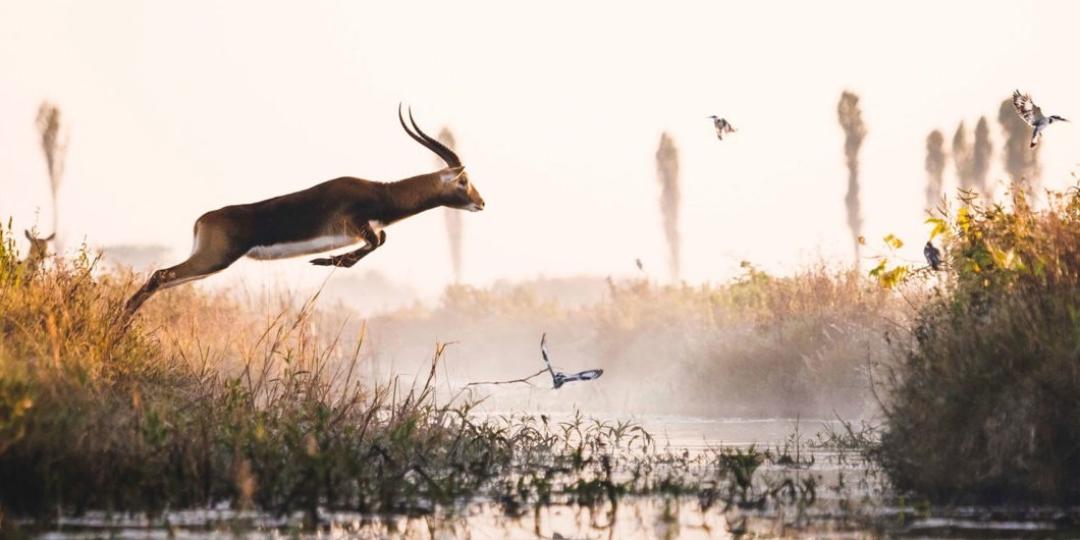The Bangweulu Wetlands, located in north-eastern Zambia, continues to thrive with several initiatives designed to preserve and restore wildlife under the custodianship of African Parks and surrounding communities.
“Much work is being done to ensure that villagers see the fruits of conservation projects and continue to support the preservation of this incredible landscape,” Zambia Tourism said in a press release.
Current projects at the wetlands include:
- Monitoring a pair of male cheetahs through to Lavushi Manda National Park. Cheetahs were translocated from South Africa in 2020, giving them a presence in the wetlands for the first time in a century. Since they are vulnerable to predation by lions, their continued survival and movements are a positive sign.
- A significant number of spotted hyenas have been collared, and their dens are being monitored by camera traps as breeding peaks during the rainy season (although it can occur all year around). Since dens can have multiple entrances, monitoring is crucial to see how many adults come and go and how many pups eventually emerge. Puppies are also susceptible to predation so keeping track of the population is crucial to conservation efforts.
- The countrywide fishing ban is in place until March to allow breeding to occur and stocks to recover. This is an ideal time to monitor shoebill stork nests and release rehabilitated birds as food should be more plentiful and there is less interference from fishing boats. It is reported that the majority of known shoebill nests produced fledglings, a huge boon for this fragile population that are also popular amongst birdwatchers.
- The Chimbani and Inja airstrips have been inspected and relicensed by the Zambia Civil Aviation Authority.
- Large herds of black lechwe are being seen around the Tuta Bridge area heading for Kasanka National Park.
“All of this important conservation work is set against a backdrop of continuous income-generation for communities, including desnaring, confiscation of illegal bushmeat, successful prosecution of poachers and upgrades for schools, clinics and other infrastructure.
“Visitors to Bangweulu over the high season (around July to October) can expect few vehicles, great sightings and near-pristine wetlands,” Zambia Tourism concluded.























